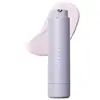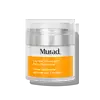What's inside
What's inside
 Key Ingredients
Key Ingredients

 Benefits
Benefits

 Concerns
Concerns

 Ingredients Side-by-side
Ingredients Side-by-side

Butyl Methoxydibenzoylmethane 3%
UV AbsorberHomosalate 9%
Skin ConditioningEthylhexyl Salicylate 4.5%
UV AbsorberWater
Skin ConditioningGlycerin
HumectantCarthamus Tinctorius Oleosomes
EmollientPentylene Glycol
Skin ConditioningButylene Glycol
HumectantC12-15 Alkyl Benzoate
AntimicrobialNiacinamide
SmoothingZea Mays Starch
AbsorbentHyaluronic Acid
HumectantSodium Hyaluronate
HumectantCitrullus Lanatus Seed Extract
Skin ConditioningAdansonia Digitata Pulp Extract
EmollientBarosma Betulina Leaf Extract
PerfumingAloe Barbadensis Leaf Juice
Skin ConditioningTocopheryl Acetate
AntioxidantGluconolactone
Skin ConditioningSorbitan Oleate
EmulsifyingAcrylates/C10-30 Alkyl Acrylate Crosspolymer
Emulsion StabilisingSodium Acrylate/Sodium Acryloyldimethyl Taurate Copolymer
Emulsion StabilisingDimethicone
EmollientIsohexadecane
EmollientEthylhexyl Methoxycrylene
Skin ConditioningPolysorbate 80
EmulsifyingXanthan Gum
EmulsifyingSodium Hydroxide
BufferingCitric Acid
BufferingPotassium Hydroxide
BufferingTocopherol
AntioxidantTrisodium Ethylenediamine Disuccinate
Ethylhexylglycerin
Skin ConditioningSodium Benzoate
MaskingPotassium Sorbate
PreservativePhenoxyethanol
PreservativeParfum
MaskingBenzyl Salicylate
PerfumingCitral
PerfumingHexyl Cinnamal
PerfumingLimonene
PerfumingLinalool
PerfumingCI 17200
Cosmetic ColorantButyl Methoxydibenzoylmethane 3%, Homosalate 9%, Ethylhexyl Salicylate 4.5%, Water, Glycerin, Carthamus Tinctorius Oleosomes, Pentylene Glycol, Butylene Glycol, C12-15 Alkyl Benzoate, Niacinamide, Zea Mays Starch, Hyaluronic Acid, Sodium Hyaluronate, Citrullus Lanatus Seed Extract, Adansonia Digitata Pulp Extract, Barosma Betulina Leaf Extract, Aloe Barbadensis Leaf Juice, Tocopheryl Acetate, Gluconolactone, Sorbitan Oleate, Acrylates/C10-30 Alkyl Acrylate Crosspolymer, Sodium Acrylate/Sodium Acryloyldimethyl Taurate Copolymer, Dimethicone, Isohexadecane, Ethylhexyl Methoxycrylene, Polysorbate 80, Xanthan Gum, Sodium Hydroxide, Citric Acid, Potassium Hydroxide, Tocopherol, Trisodium Ethylenediamine Disuccinate, Ethylhexylglycerin, Sodium Benzoate, Potassium Sorbate, Phenoxyethanol, Parfum, Benzyl Salicylate, Citral, Hexyl Cinnamal, Limonene, Linalool, CI 17200
Water
Skin ConditioningGlycerin
HumectantShea Butter Ethyl Esters
EmollientDicaprylyl Carbonate
EmollientIsodecyl Neopentanoate
EmollientJojoba Esters
EmollientGlyceryl Stearate Citrate
EmollientSynthetic Beeswax
Emulsion StabilisingDimethicone
EmollientHydrogenated Palm Kernel Glycerides
EmollientEctoin
Skin ConditioningMarrubium Vulgare Extract
Skin ConditioningAllantoin
Skin ConditioningZingiber Officinale Root Extract
MaskingBrassica Campestris Sterols
EmollientHydrolyzed Jojoba Esters
Skin ConditioningTetrahexyldecyl Ascorbate
AntioxidantHordeum Vulgare Extract
EmollientCucumis Sativus Fruit Extract
EmollientHelianthus Annuus Seed Extract
Skin ConditioningUrea
BufferingYeast Amino Acids
HumectantTrehalose
HumectantInositol
HumectantTaurine
BufferingBetaine
HumectantBisabolol
MaskingHydroxyphenyl Propamidobenzoic Acid
Skin ConditioningHydrogenated Palm Glycerides
EmollientXanthan Gum
EmulsifyingPropylene Glycol Dicaprate
EmollientAcrylates/C10-30 Alkyl Acrylate Crosspolymer
Emulsion StabilisingHexyldecanol
EmollientPentylene Glycol
Skin Conditioning4-T-Butylcyclohexanol
MaskingCetylhydroxyproline Palmitamide
Skin ConditioningStearic Acid
CleansingDisodium Carboxyethyl Siliconate
Skin ConditioningAminomethyl Propanol
BufferingDisodium EDTA
Ethylhexylglycerin
Skin ConditioningPhenoxyethanol
PreservativeParfum
MaskingLimonene
PerfumingLinalool
PerfumingBenzyl Salicylate
PerfumingCI 77891
Cosmetic ColorantWater, Glycerin, Shea Butter Ethyl Esters, Dicaprylyl Carbonate, Isodecyl Neopentanoate, Jojoba Esters, Glyceryl Stearate Citrate, Synthetic Beeswax, Dimethicone, Hydrogenated Palm Kernel Glycerides, Ectoin, Marrubium Vulgare Extract, Allantoin, Zingiber Officinale Root Extract, Brassica Campestris Sterols, Hydrolyzed Jojoba Esters, Tetrahexyldecyl Ascorbate, Hordeum Vulgare Extract, Cucumis Sativus Fruit Extract, Helianthus Annuus Seed Extract, Urea, Yeast Amino Acids, Trehalose, Inositol, Taurine, Betaine, Bisabolol, Hydroxyphenyl Propamidobenzoic Acid, Hydrogenated Palm Glycerides, Xanthan Gum, Propylene Glycol Dicaprate, Acrylates/C10-30 Alkyl Acrylate Crosspolymer, Hexyldecanol, Pentylene Glycol, 4-T-Butylcyclohexanol, Cetylhydroxyproline Palmitamide, Stearic Acid, Disodium Carboxyethyl Siliconate, Aminomethyl Propanol, Disodium EDTA, Ethylhexylglycerin, Phenoxyethanol, Parfum, Limonene, Linalool, Benzyl Salicylate, CI 77891
 Reviews
Reviews

Alternatives
Ingredients Explained
These ingredients are found in both products.
Ingredients higher up in an ingredient list are typically present in a larger amount.
Acrylates/C10-30 Alkyl Acrylate Crosspolymer is a synthetic polymer. It is used to thicken and improve the texture of products. Due to its properties, it can prevent water and oil ingredients from separating.
Benzyl Salicylate is a solvent and fragrance additive. It is an ester of benzyl alcohol and salicylic acid. This ingredient can be naturally found in some plants and plant extracts.
In fragrances, Benzyl Salicylate may be a solvent or a fragrance component. In synthetic musk scents, it is used as a solvent. For floral fragrances such as lilac and jasmine, it is used as a fragrance component. The natural scent of Benzyl Salicylate is described as "lightly-sweet, slightly balsamic".
While Benzyl Salicylate has been associated with contact dermatitis and allergies, emerging studies show it may not be caused by this ingredient alone.
However, this ingredient is often used with fragrances and other components that may cause allergies. It is still listed as a known allergen in the EU. We recommend speaking with a professional if you have concerns.
Another study from 2021 shows Benzyl Salicylate may have anti-inflammatory properties.
Learn more about Benzyl SalicylateDimethicone is a type of synthetic silicone created from natural materials such as quartz.
What it does:
Dimethicone comes in different viscosities:
Depending on the viscosity, dimethicone has different properties.
Ingredients lists don't always show which type is used, so we recommend reaching out to the brand if you have questions about the viscosity.
This ingredient is unlikely to cause irritation because it does not get absorbed into skin. However, people with silicone allergies should be careful about using this ingredient.
Note: Dimethicone may contribute to pilling. This is because it is not oil or water soluble, so pilling may occur when layered with products. When mixed with heavy oils in a formula, the outcome is also quite greasy.
Learn more about DimethiconeEthylhexylglycerin (we can't pronounce this either) is commonly used as a preservative and skin softener. It is derived from glyceryl.
You might see Ethylhexylglycerin often paired with other preservatives such as phenoxyethanol. Ethylhexylglycerin has been found to increase the effectiveness of these other preservatives.
Glycerin is already naturally found in your skin. It helps moisturize and protect your skin.
A study from 2016 found glycerin to be more effective as a humectant than AHAs and hyaluronic acid.
As a humectant, it helps the skin stay hydrated by pulling moisture to your skin. The low molecular weight of glycerin allows it to pull moisture into the deeper layers of your skin.
Hydrated skin improves your skin barrier; Your skin barrier helps protect against irritants and bacteria.
Glycerin has also been found to have antimicrobial and antiviral properties. Due to these properties, glycerin is often used in wound and burn treatments.
In cosmetics, glycerin is usually derived from plants such as soybean or palm. However, it can also be sourced from animals, such as tallow or animal fat.
This ingredient is organic, colorless, odorless, and non-toxic.
Glycerin is the name for this ingredient in American English. British English uses Glycerol/Glycerine.
Learn more about GlycerinLimonene is a fragrance that adds scent and taste to a formulation.
It's found in the peel oil of citrus fruits and other plants such as lavender and eucalyptus. The scent of limonene is generally described as "sweet citrus".
Limonene acts as an antioxidant, meaning it helps neutralize free radicals.
When exposed to air, oxidized limonene may sensitize the skin. Because of this, limonene is often avoided by people with sensitive skin.
The term 'fragrance' is not regulated in many countries. In many cases, it is up to the brand to define this term. For instance, many brands choose to label themselves as "fragrance-free" because they are not using synthetic fragrances. However, their products may still contain ingredients such as essential oils that are considered a fragrance.
Learn more about LimoneneLinalool is a fragrance and helps add scent to products. It's derived from common plants such as cinnamon, mint, citrus, and lavender.
Like Limonene, this ingredient oxidizes when exposed to air. Oxidized linalool can cause allergies and skin sensitivity.
This ingredient has a scent that is floral, spicy tropical, and citrus-like.
Learn more about LinaloolParfum is a catch-all term for an ingredient or more that is used to give a scent to products.
Also called "fragrance", this ingredient can be a blend of hundreds of chemicals or plant oils. This means every product with "fragrance" or "parfum" in the ingredients list is a different mixture.
For instance, Habanolide is a proprietary trade name for a specific aroma chemical. When used as a fragrance ingredient in cosmetics, most aroma chemicals fall under the broad labeling category of “FRAGRANCE” or “PARFUM” according to EU and US regulations.
The term 'parfum' or 'fragrance' is not regulated in many countries. In many cases, it is up to the brand to define this term.
For instance, many brands choose to label themselves as "fragrance-free" because they are not using synthetic fragrances. However, their products may still contain ingredients such as essential oils that are considered a fragrance by INCI standards.
One example is Calendula flower extract. Calendula is an essential oil that still imparts a scent or 'fragrance'.
Depending on the blend, the ingredients in the mixture can cause allergies and sensitivities on the skin. Some ingredients that are known EU allergens include linalool and citronellol.
Parfum can also be used to mask or cover an unpleasant scent.
The bottom line is: not all fragrances/parfum/ingredients are created equally. If you are worried about fragrances, we recommend taking a closer look at an ingredient. And of course, we always recommend speaking with a professional.
Learn more about ParfumPentylene glycol is typically used within a product to thicken it. It also adds a smooth, soft, and moisturizing feel to the product. It is naturally found in plants such as sugar beets.
The hydrophilic trait of Pentylene Glycol makes it a humectant. As a humectant, Pentylene Glycol helps draw moisture from the air to your skin. This can help keep your skin hydrated.
This property also makes Pentylene Glycol a great texture enhancer. It can also help thicken or stabilize a product.
Pentylene Glycol also acts as a mild preservative and helps to keep a product microbe-free.
Some people may experience mild eye and skin irritation from Pentylene Glycol. We always recommend speaking with a professional about using this ingredient in your routine.
Pentylene Glycol has a low molecular weight and is part of the 1,2-glycol family.
Learn more about Pentylene GlycolPhenoxyethanol is a preservative that has germicide, antimicrobial, and aromatic properties. Studies show that phenoxyethanol can prevent microbial growth. By itself, it has a scent that is similar to that of a rose.
It's often used in formulations along with Caprylyl Glycol to preserve the shelf life of products.
Water. It's the most common cosmetic ingredient of all. You'll usually see it at the top of ingredient lists, meaning that it makes up the largest part of the product.
So why is it so popular? Water most often acts as a solvent - this means that it helps dissolve other ingredients into the formulation.
You'll also recognize water as that liquid we all need to stay alive. If you see this, drink a glass of water. Stay hydrated!
Learn more about WaterXanthan gum is used as a stabilizer and thickener within cosmetic products. It helps give products a sticky, thick feeling - preventing them from being too runny.
On the technical side of things, xanthan gum is a polysaccharide - a combination consisting of multiple sugar molecules bonded together.
Xanthan gum is a pretty common and great ingredient. It is a natural, non-toxic, non-irritating ingredient that is also commonly used in food products.
Learn more about Xanthan Gum